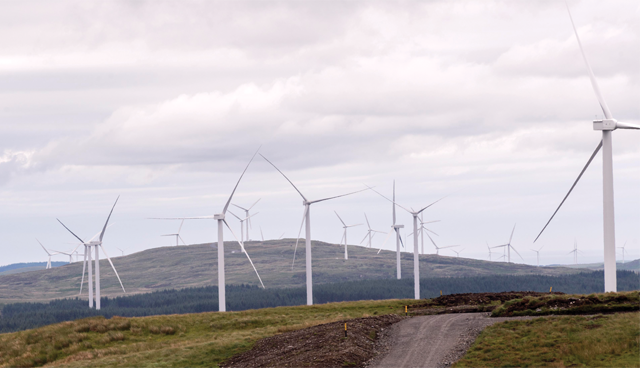Transitioning to a new era of energy systems

Power generation, rising energy consumption and a demand for greener energy are driving immense change. This shift will, undoubtedly, bring about many challenges and opportunities requiring all stakeholders, on both the supply and demand side, to rethink how we generate and consume energy, writes Alan McHugh, Associate Director at Kirby Group Engineering.
It begs the question: how can we deliver greener energy solutions whilst meeting ever-growing energy demands? Addressing this challenge is not only important for broad societal benefits. Economic interests and Ireland’s attractiveness for foreign direct investment particularly for growth sectors such as data centres are at the heart of our objectives.
Dublin is Europe’s largest data hosting cluster and shows no sign of being usurped for this title any time soon with data centre investment set to top €10 billion by 2022. EirGrid echoes the predicted growth in this sector as it expects demand from data centres could account for 31 per cent of all demand by 2027.
Our data centre clients are looking for ways to deliver cleaner, greener infrastructure and we are working with them to deliver energy efficient data centres. Renewable energy will play a key role in green IT practices and we are seeing significant investments in this area by data centre companies. The Irish Government’s Climate Action Plan targets 15 per cent of electricity demand by renewable sources contracted by way of Corporate PPAs and we are likely to see further developments in this area.
Another game changer may be the introduction of private networks. Imagine a situation whereby data centre clusters could have their own energy ecosystem based on dedicated networks which facilitate multi-source power generation, maximising the contribution of renewably-sourced power to meet their needs.
Minimising the cost of transmission infrastructure and ensuring that only those who are directly benefitting from it, helps keep a downward pressure on average-user electricity prices. Similarly, increased innovation and efficiency in the design and construction of this infrastructure is key. Through our international operations, we are keenly aware of the varying application of guidelines and specifications from country to country. The purpose of the infrastructure is the same in all instances. The cost clearly is not.
Renewable energy can and will play a vital role in meeting future energy demands whilst also supporting the recently launched renewable energy target of 70 per cent by 2030. Renewable energy is the cleanest and cheapest form of energy for the future and according to the recent Baringa 70 by 30 report, a move away from a fossil fuel scenario to a renewable energy scenario “results in significant benefits and savings”.
There is a remarkable change in renewable energy investment taking place in Ireland and across Europe; there are 4–5,000MW of offshore and onshore windfarm projects in the pipeline in Ireland alone. It is not only new investments that can play a role in the energy mix, repowering is an important piece of the jigsaw. Repowering current infrastructure can significantly support energy generation across Europe.
Ireland and the rest of Europe is on the cusp of the next leap forward in energy transition. This leap poses challenges and opportunities but in the words of Minister Bruton at the launch of the Climate Action Plan 2019, “we must all now take up the challenge”.
T: 01 454 0411
E: amchugh@kirbygroup.com
W: www.kirbygroup.com






